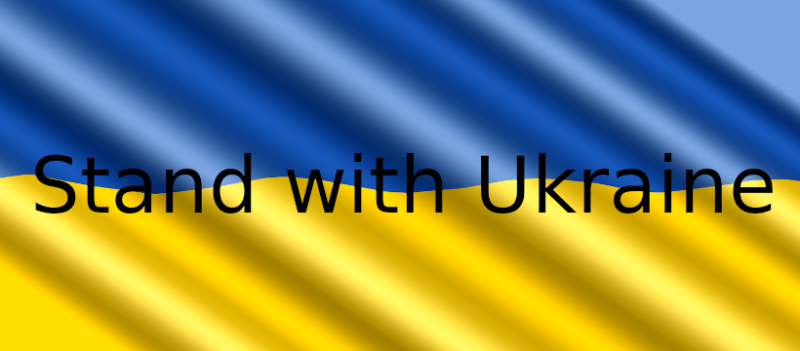Posted on February 21, 2022

The Ukrainian History and Education Center has, until now, not weighed in on the tensions that have been growing around Ukraine during the past weeks. Of course, we have been following the news with growing alarm and concern for our fellow Ukrainians in Ukraine. This includes the Ukrainians who have visited us and/or done research here, those whom we have helped as remote researchers, and the many with whom we have had personal interactions. Our staff and volunteers have family members living in Ukraine. The reason we had refrained from commenting was because our institutional mission does not include the analysis of foreign affairs, international security, or the politics of military alliances.
But today, February 21, 2022, Vladimir Putin gave a speech that clearly demonstrated what the current crisis is fundamentally about. It’s not about Europe. It’s not even really about NATO or perceived threats to Russian security. It’s about the legitimacy of Ukraine as a nation. And it’s about two radically different accounts of history. Since we are the Ukrainian History and Education Center, we feel that we must speak up.
Russian claims that Ukraine is “just a part of Russia” are nothing new. Arguably, it goes back at least to the Pereiaslav Agreement between hetman Bohdan Khmelnytskyi of the Cossack Hetmanate and tsar Alexei I of the Tsardom of Muscovy. In the negotiations that led to this Agreement (which the Harvard historian Serhii Plokhy has aptly dubbed the “Pereiaslav disagreement”), neither side fully comprehended what the other thought that it was agreeing to. Rather than being the “reunification of Ukraine with Russia” portrayed by Russian and Soviet historians, the two sides had very different ideas of their relationship: Khmelnytskyi thought he was agreeing to a protectorate, while the tsar assumed he was simply gaining new subjects. The linguistic gulf between the two sides was so deep that they needed interpreters to communicate.
The Pereiaslav Agreement was finalized in 1654, more than a century before the United States declared its independence. Since then, Russian attempts to suppress Ukrainian aspirations have occurred with disturbing regularity. Here is just a small sample.
In 1708, after the defeat of the Ukrainian hetman Ivan Mazepa at the Battle of Poltava, the Russian army under Alexander Menshikov sacked Mazepa’s fortress in Baturyn, massacring the women and children who had gathered there for safety.
In the 19th century, the Valuev Circular and the Ems Ukaz banned the publication of Ukrainian books and periodicals in the Russian Empire. The Valuev Circular even declared that “the Ukrainian language never existed, does not exist, and cannot ever exist”, thereby ironically proving the exact opposite: why would you need an edict banning something that doesn't exist?
Ukraine had a brief spell as an independent, anti-Bolshevik state during the period of revolution in 1917-1921, which, of course, puts the lie to Putin's preposterous claim that Ukraine was somehow Lenin's "invention". But the Bolsheviks did succeed in incorporating Ukraine into the Soviet Union, leading to repression, terror, and even genocide. This terror entered western areas of Ukraine when they were annexed by the Soviet Union during and after World War II.
There is, however, one way in which history is not repeating itself. A century ago, Ukraine failed to obtain widespread international recognition, especially after Woodrow Wilson’s idealistic principle of “self-determination” collapsed under the weight of geopolitical expediency. Today, Ukraine is recognized as an independent, sovereign state, and it appears that the democratic “great powers” may finally be ready to stand with Ukraine in its defense of that independence and sovereignty.
As “60 Minutes” journalist Lesley Stahl learned during her recent interviews with Yale historian Timothy Snyder and Ukraine’s Foreign Minister Dmytro Kuleba, there is nothing new about Russian attempts to suppress Ukraine. Snyder and Kuleba put it quite bluntly: Ukrainians have been relatively calm in these past weeks because they know it’s happened before and can easily happen again, but that over 300 years of such suppression has not succeeded in eliminating Ukrainian aspirations for nationhood.
We call on all people and nations of goodwill to stand with Ukraine at this dangerous time so that history will not repeat itself.
